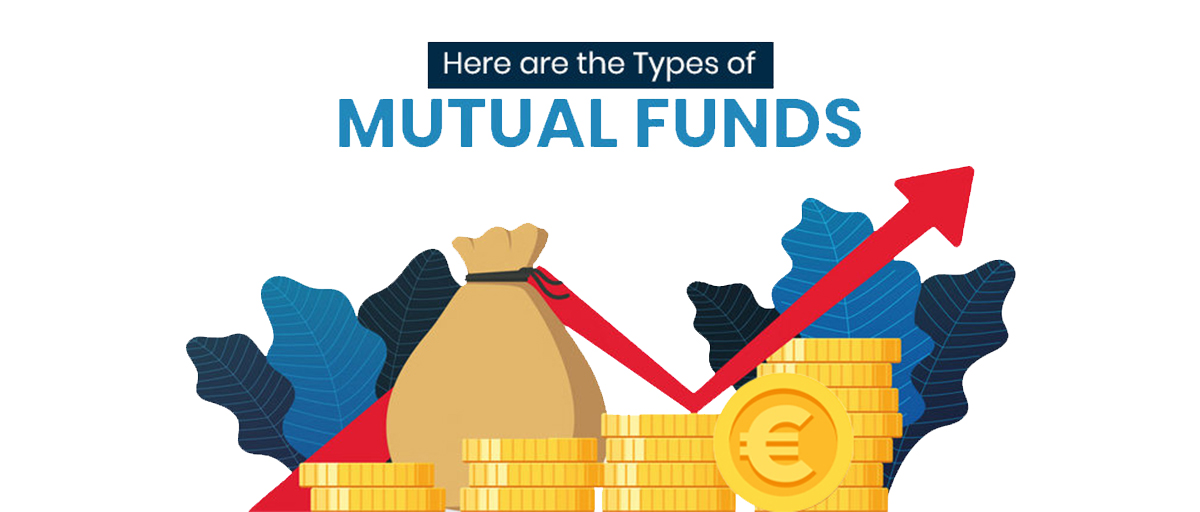A mutual fund is an investment made up of sums of money collected from a group of investors for the fund manager to invest. Managers utilise this money to acquire securities like stocks, bonds and other assets. As an investor, you can buy into a fund and own a portion of the fund’s holdings. You will share in the gains and in the losses of the fund as you will become one of the ‘shareholders’.
Mutual funds are some of the most popular investment options that are interesting for inexperienced and professional investors alike. They are easy to buy, and come up with a healthy amount of built in diversity.
There are a huge number of funds available. Each one varies when it comes to growth and risk tolerance. There are a lot of different types of funds, but the following are the most common ones that will help you build a diversified portfolio.
Money Market Funds
These funds invest in fixed-income; short-term debts from banks, corporations, and governments. Money Market Funds are considered the safest type of mutual funds as they carry a lower risk and in turn, have a low return on investment when compared to other mutual funds. However, typically they are still better than a savings account.
A Money Market Fund is the ideal investment to temporarily deposit your cash when you are not sure where to invest.
Fixed Income Funds
Fixed Income Funds, commonly known as bond funds, are popular because they are considered a safe option on the market, though it is important to note that no investment is completely safe. Owning a Fixed Income Fund simply means that you are investing in a mutual fund that buys and holds a number of bonds issued by governments and corporations. The fund’s objective will indicate what type of bonds the fund can buy into (e.g. high yield or investment-grade bonds).
Due to the nature of the underlying investments, these funds typically pay its investors a steady stream of income and are ideal for those customers not looking to take high risks but are looking for an investment that supplements their current income.
Index Funds
An index fund is a type of mutual fund with a portfolio constructed to match or track the components of a financial market index. Some examples of market indices are the S&P 500, FTSE100 and MSCI World.
Index funds have lower fees that other more actively managed funds. For Index funds, the fund manager builds a portfolio whose holdings mirror the securities of a particular index and therefore the value of the fund goes up and down as the index rises or lowers.
Index funds offer investors diversification and it is important to remember that he more diversification you have the less risk you carry.
Equity Funds
Equity Funds, also known as Stock Funds, purchase shares in public traded companies. In good market scenarios, these actively managed funds give higher returns than Fixed Income, Money Market and Index Funds. It is important to remember that since these funds invest in shares, holders are exposed to higher risks when compared to the other type of funds.
Due to their nature, these funds are more attractive to younger investors since these funds typically give capital growth as opposed to income. Investing in these funds should be with a longer-term approach since the capital fluctuates much more than with the other type of funds.
Funds investing in equities would normally have a very specific objective and the fund managers would invest only in a sub-selection of equities. Some of these selections will be based for example on the size of the companies, the industry sectors the companies operate in or the geographical location of the companies.
Balanced Funds
These are sometimes also called Asset Allocation Funds. The focus of these funds is to invest in a combination of fixed income and equity securities. The main goal of these funds is to get a better return than that of fixed income funds whilst taking fewer risks when compared to equity funds. As a general rule, these funds follow a formula of proportion, a conservative balanced fund will invest 80% in bonds and 20% in shares whilst an aggressive balanced fund would invest 70% in shares and 30% in bonds.
Speciality Funds
These are mutual funds that invest predominantly or exclusively in securities of a particular industry or a specific region of the world. They are sometimes also referred to as thematic funds. Some examples of these funds are mutual funds investing in healthcare, innovation, social responsibility, and environmental preservation. These funds are can be extremely volatile since by nature they do not diversify their investments and hold high concentration in one sector.
Fund-of-Funds
A fund-of-funds, sometimes also referred to as a multi-manager investment, is a mutual fund that invests in other funds. Since the fund would have holdings in several underlying mutual funds, investing in a fund-of-funds would mean that you would be spreading your holdings across more securities when compared to investing in one equity or fixed income fund. This type of fund would allocate assets according to its goals. For example, an aggressive approach is a fund focusing more on mutual funds that invest in stocks whereas a conservative approach would be a fund investing assets in mutual funds that invest mostly on bonds. The management of a Fund-of-Funds is comparatively very costly as the investor will be paying the fees to invest in this fund and the fees paid to the underlying funds the fund-of-funds is investing in.
Which type of mutual Fund is the right one for you?
As with any type of investment, when you are thinking of investing in funds you need to know what your ultimate goal is. It is equally important to know exactly how the mutual funds works, and whether it matches with the level of risk you are willing to take. It is also important to know what fees you will be paying for your investment.
The main advantage of investing in a mutual fund is that these investment vehicles help you diversify your portfolio, living to the adage of never putting all your eggs (savings) in one basket.
How do I Invest in Mutual Funds? At MeDirect we have a fund universe of hundreds of funds, over a variety of sectors and regions. We work with the biggest fund houses in the world to provide our clients with the best possible options to invest for their future. Our platform contains all the tools you need to make an informed decision which is right for you. Click here to visit our Mutual Funds page.





